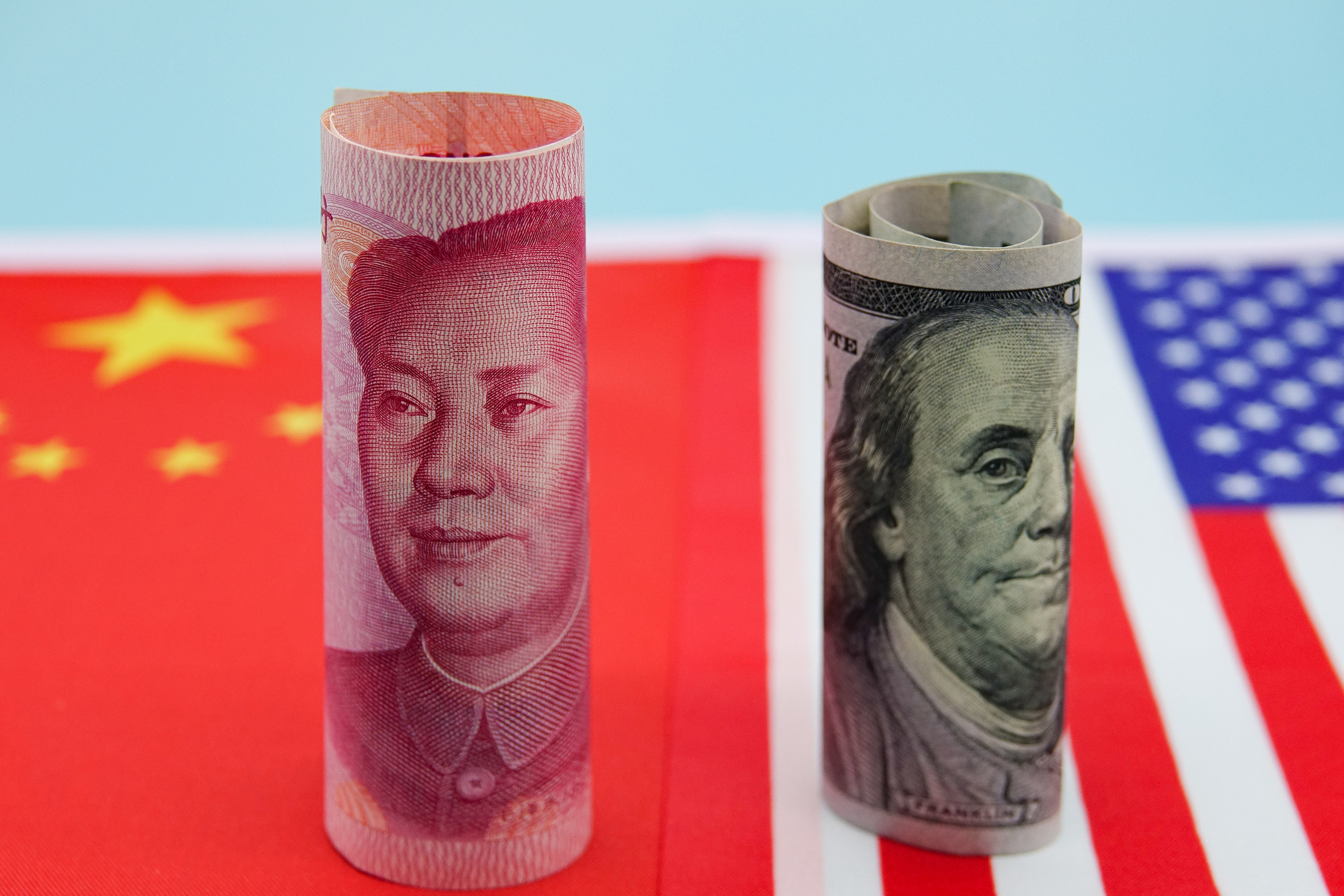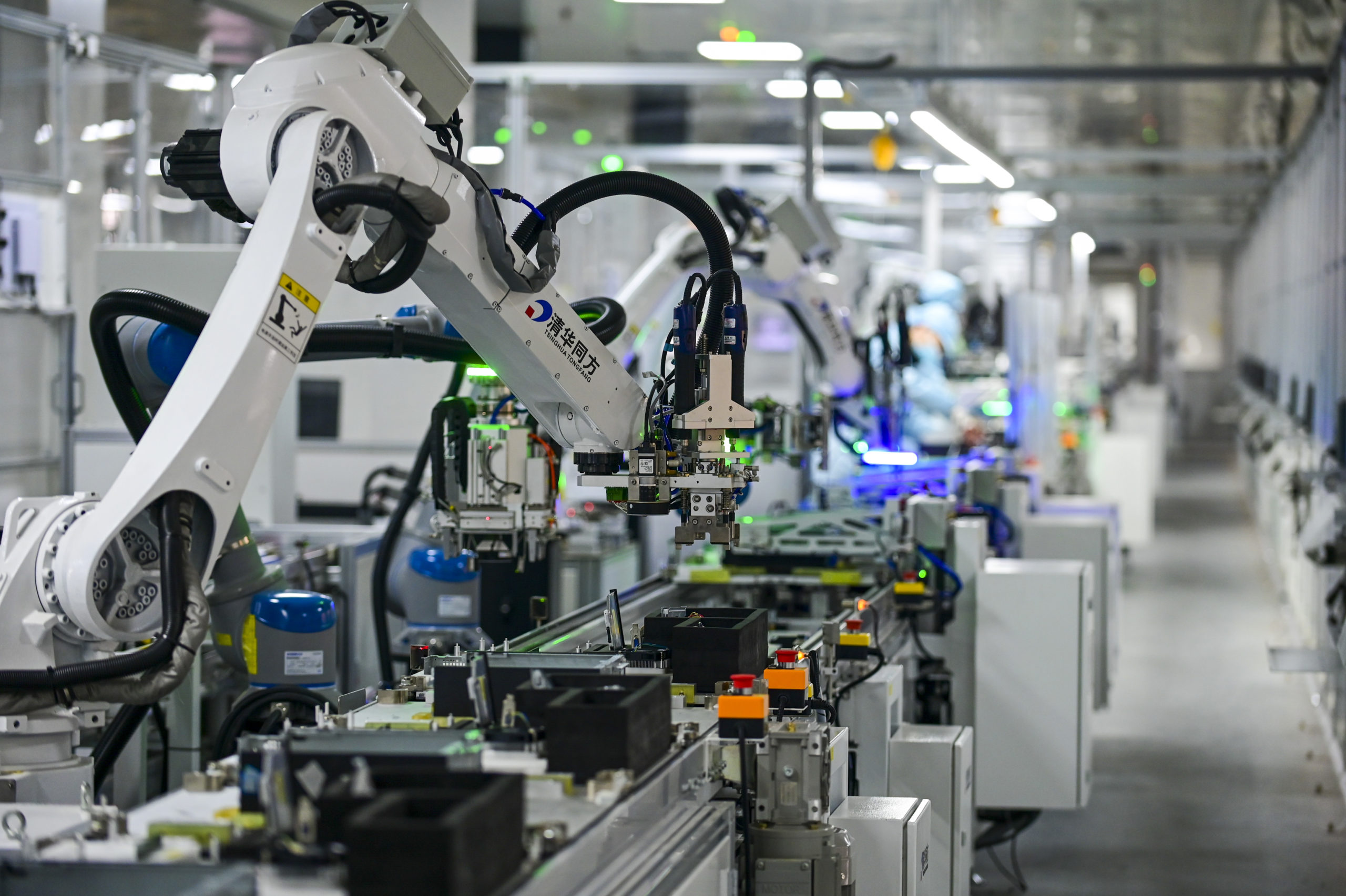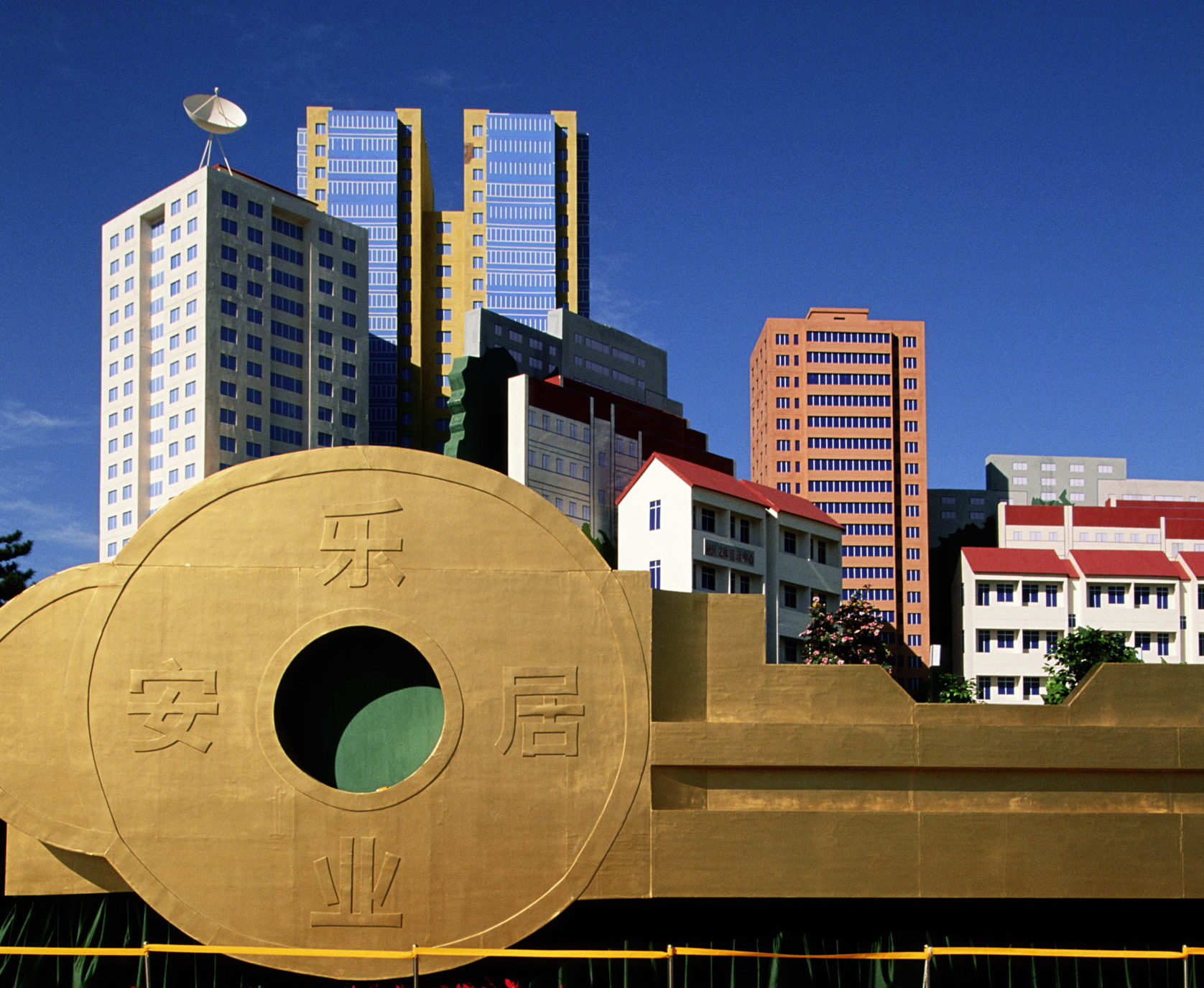We are past the point where we can decouple economically from China.
This is War

Free trade with a hostile nation is a losing game.
The following is an excerpt from Jonathan Pelson’s new book, Wireless Wars: China’s Dangerous Domination of 5G and How We’re Fighting Back.
Why Complain?
Why didn’t the regulators and government authorities in the United States and Europe stop the damage from Huawei? Why did they allow the Chinese company to sell their gear in the U.S., and all over the world, at prices that were clearly below cost, low enough to take business from most competitors, and so low they destroyed the margins on competitors who had to slash their own prices to win the business? Shouldn’t countries prevent foreign companies from entering and dominating their markets, selling products below cost? And shouldn’t countries put up trade barriers to block foreigners if their home country doesn’t also open its markets to imports?
This is often the response from governments, whether in the Americas, Europe, or elsewhere. Leaders come to the aid of domestic industries, decrying unfair competition. Companies under threat try to position themselves as “strategic,” and warranting protection. Somehow, the truly strategic telecom sector failed to earn this designation. But should any sector block foreign suppliers, even if those suppliers are selling their products at unreasonably low prices?
There aren’t simple answers to these questions, says Mike Munger, an economist and former chair of the department of political science at Duke University, where he continues to teach political science, public policy, and economics. He argues that trade deficits aren’t a problem, and he makes the case for continuing to trade even when a partner subsidizes their products and puts up barriers to yours.
“My trade deficit with Kroger’s supermarkets is gigantic,” he deadpans. “I buy a ton of groceries from them and they never buy anything from me. The last time I tried to sell them some of my stuff, they called the cops.” Munger says that if one party has something of value and the other party has money they want to exchange for it, no voluntary exchange is bad.
The reason he gives the store his money is because Kroger can deliver food to him cheaper and better than he can produce it himself. In business schools, this is called the “make or buy” decision: never make anything yourself if you can buy it from another source for less. Munger instead chooses to focus on his core business, teaching classes and publishing books and papers. If he spends time making other things, things he could have purchased on the market, he’s losing money. If he didn’t already realize it, the market is telling him that society values his abilities as a professor more than his ability to churn butter or make his own shoes.
If Huawei sells us gear cheaper than we can make it ourselves, we ought to buy that gear and let our competing companies get into a different business, Munger argues. We would avoid expending labor creating something of one value and instead acquire that thing for less, freeing up our labor to create something more valuable.
“The division of labor is the only source of wealth the world has ever known,” he says. “Wealth is the result of me specializing and you specializing: the total amount of stuff produced increases.”
What if the company, or country, selling it funds those sales at prices below its own actual cost?
“Well, more power to them. That’s terrific. If Kroger subsidized food to make it cheaper for me, I’d thank them.” In effect, when the Chinese government funds Huawei’s exports, that is a tax on its consumers and citizens and a transfer to America’s consumers, who get stuff more cheaply.
And what if a company is just selling things cheaply so they can drive everyone else out of business and jack up the price? Munger explains that the math is clear that it doesn’t make sense to do this. The up-front cost to sell so cheaply is typically too high for a company to earn it back through excess prices after they have become the last man standing. Other companies will just reenter the market if they see an attractive price environment, preventing the first company from reaping those excess profits. China subsidizing its exports to undercut our companies hurts its citizens and transfers the money to ours, and it can’t expect the move to pay off, at least not economically.
Munger says that this process may not make economic sense for China, but that’s their problem. Maybe it gives them an industry that they think they need. And China blocking our imports? Sure, it’s better for us and them if they let us compete freely, but we would only make it worse if we created our own barriers too. Blocking or limiting American equipment vendors hurts China’s companies and citizens, who get less choice and may have to pay more because of the restricted competition. But, again, that’s not our problem.
Munger continues, “You might say, ‘But China benefits from this more than we do!’ That’s fine. It means China’s wealthier and it’s likely to (eventually) start buying more U.S. exports, because if it has more money, it won’t be so export focused.” In other words, wealthy countries consume more, and that means they should, eventually, import more. “If you look at South Korea, Japan, even Germany, who used to only focus on exports, they started buying iPhones and software and a lot of things that the U.S. made once they became wealthy.”
But then Munger pauses. “This is how free trade is good and creates wealth,” he says, “but only provided that you take a liberal worldview that we’re all in this together.” This model of wealth creation only applies when you’re dealing with trading counterparts, where the relationships are long-term and the tone is primarily cooperative. As long as you get wealthier, you shouldn’t really care if your counterpart gets even wealthier than you. It’s only in a time of war that you refocus from absolute wealth and power to relative wealth and power vs. other countries.
Now, if Kroger’s plan were to undercut all other supermarkets until they went bust, then suddenly cut off the food supply and starve everyone into submission, that wouldn’t be a very good business plan. It wouldn’t make much economic sense to harm their customers, and they would lose a fortune subsidizing the food long enough to destroy their competitors—more money than they could ever make back price-gouging later—but they would certainly gain power over their customers, far more than a grocer might typically have.
And that would be an entirely different story….
Not If It’s War
In 2019, as the importance of 5G and the Internet of Things became clear and countries started waking up to the threat from Huawei, many considered it too late to do anything. Huawei was too big, too good, too cheap to exclude from the world’s networks. It would cost individual companies billions of dollars to rip out existing Huawei gear and convert to other vendors and, more importantly, there were no other vendors, at least none that could roll out a 5G network as quickly and for the same price.
Nokia and Ericsson were coming to be seen almost as stalking horses, there to fulfill a long-understood need for carriers to retain some vendor diversity, to give 20% or 30% of a network to another vendor to hedge against monopoly pricing and political or company risk. Bitter irony that the global giants, who once grudgingly accepted access to China’s huge market with a 20% cap on market share, were now relegated to fighting each other for that much share on their own turf.
But what, exactly, was the rationale to block Huawei from selling its products? Was it because they were being subsidized unfairly? Because they were displacing local companies? Because there was a trade deficit with China? Mike Munger, the Duke professor, had explained his view that if countries want to subsidize their exports, we should let them do it and be glad. What’s wrong with another government taking money from its own citizens and transferring it to our citizens and consumers in the form of subsidized low prices? But he had come to a new understanding of the situation.
Taking Casualties
“For the first two years of the Trump presidency I thought these people were idiots,” says Munger, referring to announcements of U.S. tariffs and the threat of a full-scale trade war to counter the trade deficit with China. He still has profound disagreements with many of the policies Trump put in place, but he realized that there is a fallacy in the context under which we consider trade with China. The argument put forward by nearly all classically trained economists assumes that companies and countries interact in a system of rivalry and competition, engaging in vigorous efforts to secure the best deals for themselves but with an understanding that they are participating in long-term trade relationships. As a result, successful global trade means that trading partners become dependent on each other. This brings about peaceful relations and creates wealth through specialization of labor.
“The problem is that I didn’t understand that there was a second view,” says Munger, “which is that the world is not primarily liberal and cooperative.” He illustrates his point in the starkest terms. When General Eisenhower had the troops gathered for the invasion of Europe in June of 1944, he understood what to expect if he proceeded:the allies would suffer a massive loss of lives and materiel. Thousands of productive citizens would be killed. Expensive ships would be sunk, tanks destroyed; no matter how well the exchange went with the enemy, the endeavor would create a net loss for the allies. With this knowledge, why would the general proceed with a voluntary exchange that would leave his country poorer for it?
Because this scenario was not a voluntary exchange between trading partners. Those trade rules don’t always apply.
Not if it’s war.
In a liberal worldview, power and wealth are measured in absolute terms. Every country wants to get wealthier; it works to get the best deal possible, but if a cross-border transaction achieves that, and it is satisfied with the terms of the deal, it doesn’t worry about whether its trading partner is getting even wealthier.
“In war, power is relative,” says Munger. “We will often do things that harm ourselves so long as it harms our enemies more. When a general decides whether to take a hill, he knows he may lose men, but if he expects the enemy to suffer more—if he thinks he’ll impose ten times the casualties on the enemy and win the hill—it may be the right decision.
Munger sees this as the alternative way to think of our relations with China: “If we go for a trade war with China, if we restrict our imports from China, of course it harms our consumers. The president’s team was not confused about that. The point was to harm China more.” And he makes his point crystal clear: “Because the U.S. and China are rivals for power, not partners in economic growth.”
This viewpoint is not one that is explained in the language of trade or economics. Global trade relies on ideas of comparative advantage, voluntary exchange, outsourcing activities that others are better at and insourcing the things that you do best. It’s how all parties are lifted and become cooperating elements in a global ecosystem of trade.
But in war, wealth and power are not absolute, they are relative. It may be necessary to end beneficial outsourcing and pay more for an inferior system if this action denies your enemy wealth. It may be necessary to avoid becoming dependent on someone who views you as an enemy not a trade rival. Munger continues: “If the United States has a slightly weaker economy, and China has a much weaker economy, and is less able to project its power abroad, that’s a benefit to the United States.”
How does Munger see China advocating for its interests? “Huawei’s a great example,” he says. “‘This is just 5G technology! How could it not be great? It benefits consumers!’ Well, no. For two reasons, we should not be using Huawei: first, it benefits China by giving them a lot of revenue that will allow them to increase its global influence even further, and second, it makes us more dependent on a country that we should recognize we are at war with.”
With this understanding, the free-trade economists’ arguments against the U.S. administration’s combative policies carry no more water than a plea to Eisenhower to cancel the invasion of Normandy to save money.
Does Huawei reject this shift in attitude from the United States and much of the rest of the world? Is the idea of “war” excessive for a company that just makes radios? Apparently not. Huawei has responded in kind, with Ren acknowledging to his employees that “the company has entered a state of war,” according to a transcript of a February 2020 speech cited by the Wall Street Journal. This is mild compared to comments the paper also attributed to Ren at his company’s research center in Hangzhou: “Surge forward,” two executives confirm he told his employees, “killing as you go, to blaze us a trail of blood.”
Yes. This is war.
The American Mind presents a range of perspectives. Views are writers’ own and do not necessarily represent those of The Claremont Institute.
The American Mind is a publication of the Claremont Institute, a non-profit 501(c)(3) organization, dedicated to restoring the principles of the American Founding to their rightful, preeminent authority in our national life. Interested in supporting our work? Gifts to the Claremont Institute are tax-deductible.
What if they declared a trade war, and only one side showed up?


